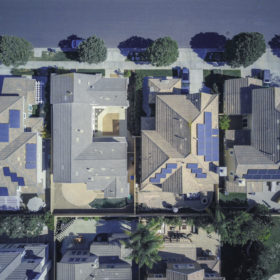It has been taken as an article of faith by opponents of the Section 201 trade case that tariffs on imported solar would not result in new manufacturing capacity. This has been echoed by analysts, who have stated that the low level of tariffs means that new factories don’t make economic sense.
If today’s news is any barometer, both groups are wrong. The Chairman of the newly formed United Renewable Energy (URE) has announced that the three Taiwanese cell makers that comprise the new company will build a module factory in the United States.
Available details are both sparse and contradictory. Press coverage by Digitmes mentions an investment of US$10-17 million, but also an annual production capacity of 500-1,000 MW.
These two figures simply do not match. “The price range could work but only for the equipment and you can even buy second-hand equipment these days,” IHS Markit Research Director of Solar and Energy Storage Edurne Zoco told pv magazine.
Neo Solar Power (NSP) Chair Sam Hong also serves as URE chair, and NSP was unable to provide further details. “Neither the location, capacity nor CAPEX has been decided yet,” states Hao Huang, from NSP’s Investor Relations Department.
This news comes as JinkoSolar has announced its plans for a U.S. factory, several weeks after a source revealed to pv magazine that JinkoSolar is the “Project Volt” negotiating with the City of Jacksonville, Florida for an incentive package.
It is not clear what the capacity of either factor will be.
This content is protected by copyright and may not be reused. If you want to cooperate with us and would like to reuse some of our content, please contact: editors@pv-magazine.com.









By submitting this form you agree to pv magazine using your data for the purposes of publishing your comment.
Your personal data will only be disclosed or otherwise transmitted to third parties for the purposes of spam filtering or if this is necessary for technical maintenance of the website. Any other transfer to third parties will not take place unless this is justified on the basis of applicable data protection regulations or if pv magazine is legally obliged to do so.
You may revoke this consent at any time with effect for the future, in which case your personal data will be deleted immediately. Otherwise, your data will be deleted if pv magazine has processed your request or the purpose of data storage is fulfilled.
Further information on data privacy can be found in our Data Protection Policy.